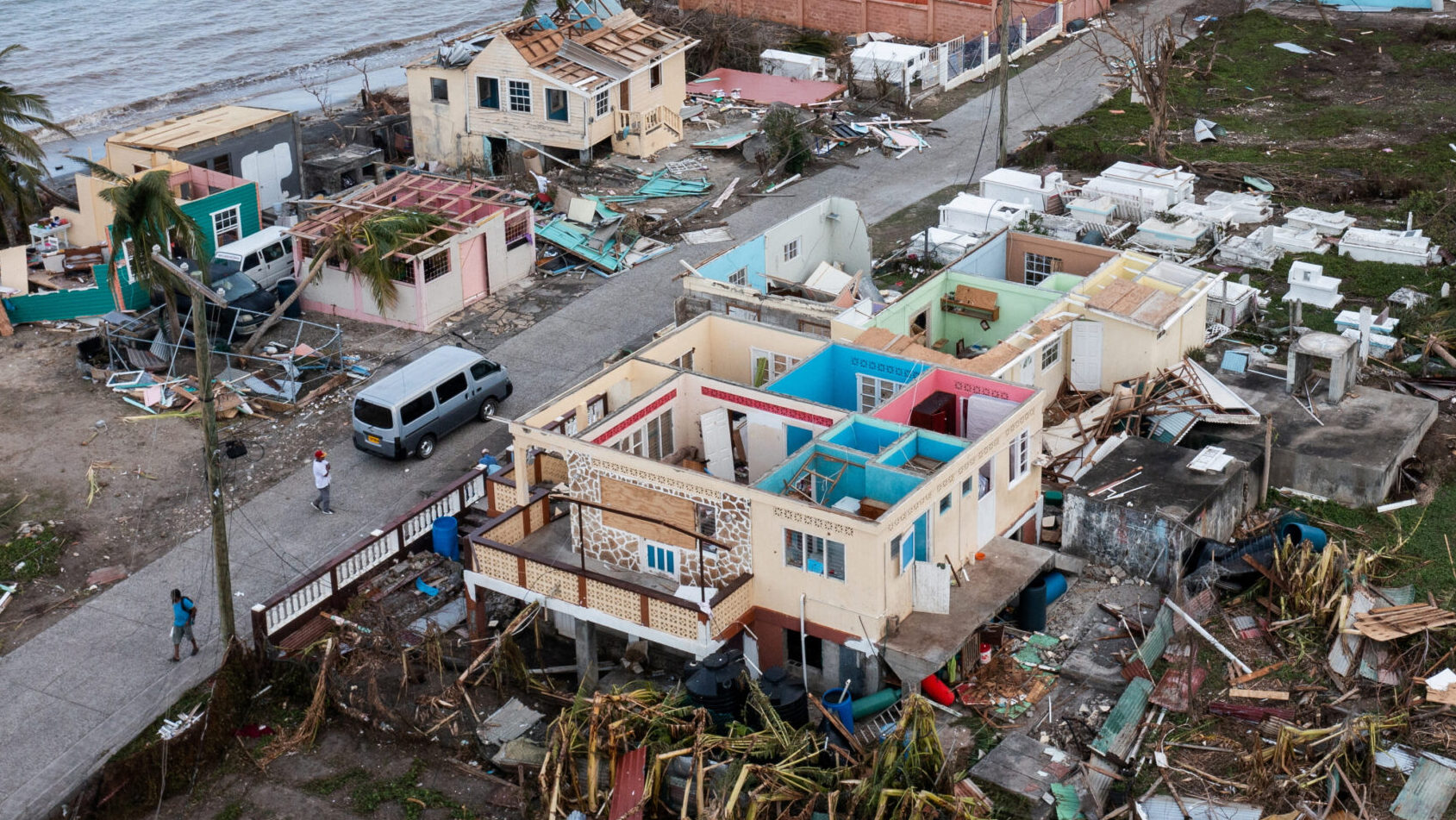Everyone’s heart should cry out for the people of Union Island, Carriacou, St Vincent, Grenada, parts of Jamaica, Saint Lucia, and the fisherfolk of Barbados, all of whom suffered greatly under Hurricane Beryl’s severe blow. On Union Island and Carriacou, the destruction was particularly vicious, leaving residents lost and helpless, with their homes and livelihoods destroyed.
It is crucial for every government worldwide to recognise that these suffering individuals are not the architects of their misfortune. The root cause is climate change, driven by governments that continue to emit massive amounts of greenhouse gases into the atmosphere. These emissions have created and perpetuate the conditions for climate change, including the extreme warming of the seas. In other words, the people suffering in these five Caribbean countries are victims of a crisis created by others.
It is akin to having their cars parked safely in their garages, only for huge trucks, belonging to strangers, to intrude and crush them. In such circumstances, the law should mandate adequate compensation. However, international law, including international humanitarian law, has yet to be designed to provide such compensation.
Continuing with the analogy, individuals whose cars are damaged by the reckless behaviour of a third party may be able to secure benefits if their property is insured. However, two essential points must be considered. First, no insurance company will insure any property that is repeatedly damaged under similar circumstances. Second, with each claim, insurance premiums escalate, putting such insurance beyond the reach of affected individuals. As a result, small and medium-sized businesses find it difficult, if not impossible, to rebuild, leading to unemployment, expanded poverty, and intense hardship for vulnerable groups such as single parents and their children. Furthermore, government revenues are reduced due to lower tax and fee payments at a time when expenditures increase to cope with displaced persons and the rebuilding of both physical and social infrastructure.
An Associated Press report in the New York Times on July 11, 2024, indicates that insurers are significantly raising rates in response to Hurricane Beryl. This development follows a six-year trend of steadily increasing insurance premiums as companies face enormous risks from climate change. According to the New York Times article, effective homeowner insurance rates surged by double digits for most insurance companies in 2023. If the impacts of climate change continue to escalate, it will become increasingly difficult for homeowners and businesses to maintain insurance or rebuild after disasters.
Hurricane Beryl has also created “climate refugees” in the Caribbean again. Many affected individuals have been forced to evacuate to other parts of their respective unitary states, requiring their upkeep by governments whose resources are already stretched. Similar situations occurred in Antigua and Barbuda in 2017 with Hurricane Irma and in The Bahamas in 2019 with Hurricane Dorian.
Antigua and Barbuda and The Bahamas, with limited help from international institutions and no structured response from major polluting countries, had to manage burdensome situations as best they could, including by seeking assistance from a few willing friendly nations. Similarly, the Caribbean countries impacted by Beryl will need to be creative in coping with the considerable challenges they face. They will also desperately try to avoid last-resort borrowing from the International Monetary Fund (IMF), whose policymakers impose harsh lending conditions.
The governments of countries that are major contributors to climate change are keen to keep all discussions related to climate financing, including compensation for loss and damage, within the confines of the annual Conference of the Parties (COP). However, developing countries, especially those in vulnerable areas such as the Caribbean and Central America, have been disappointed with the outcomes of COP meetings, where delivery often falls short of the pledges made. This includes the capitalisation and operationalisation of the “loss and damage fund” finally agreed upon at COP 28.
Consequently, developing countries, including small island states, have had to turn to international law to try to curb climate change and its impacts and to seek redress for the losses and damage they suffer. Chile and Colombia, for example, have sought an advisory opinion on “Climate Emergency and Human Rights” from the Inter-American Court of Human Rights. Additionally, the Commission of Small Island States has secured an advisory opinion from the International Tribunal for the Law of the Sea, which warns that human-induced increases in the planet’s temperature, including its oceans, directly impact the occurrence of more extreme and recurrent natural disasters.
Further, at the initiative of Vanuatu, the United Nations General Assembly adopted a landmark resolution on March 29, 2023, requesting the International Court of Justice (ICJ) to issue an advisory opinion on states’ obligations regarding climate change under international law. This request aims to clarify the responsibilities of states to protect the climate system from anthropogenic greenhouse gas (GHG) emissions for both present and future generations. The ICJ has granted this hearing, and the process is currently underway.
It is unfortunate that a matter of such grave concern to small countries, persistently and severely impacting the lives and livelihoods of their people, has become divisive. After all, it is the major contributors to climate change, particularly through greenhouse gas emissions, whose actions—or lack thereof—repeatedly impact areas such as Central America and the Caribbean.
There should be a more sympathetic and proactive approach to supporting countries affected by climate change. While small islands are the worst affected, larger mainland countries are not immune, as Hurricane Beryl has clearly demonstrated. The politics of addressing climate change must shift towards genuine understanding and cooperation. If not, the conditions of our planet will progressively worsen, leaving a trail of decimated countries in their wake – one after the other.
Responses and previous commentaries: www.sirronaldsanders.com




